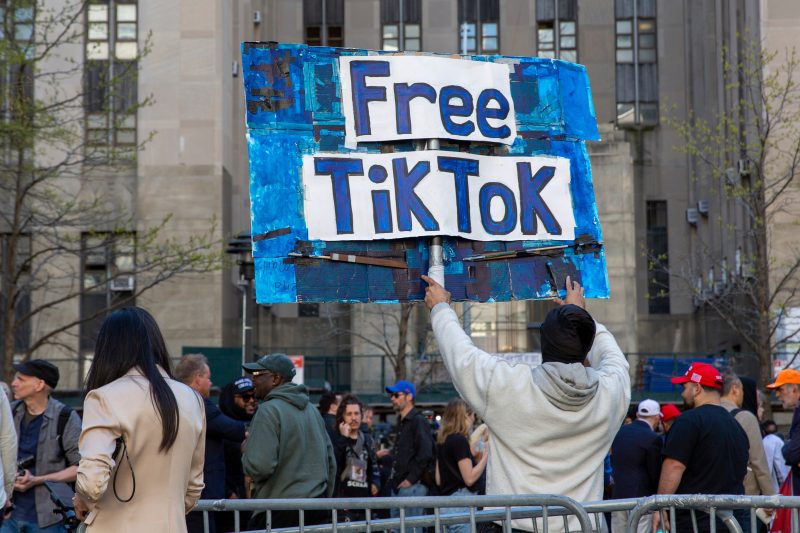In the ever-evolving landscape of social media controversies, TikTok has emerged as a prominent player, attracting attention from both politicians and the general public. Recently, former President Donald Trump has made headlines yet again by accusing President Joe Biden of wanting to ban TikTok in the United States. This surprising turn of events marks a notable reversal in Trump’s previous stance on the popular app. Let’s delve deeper into the implications of this accusation and its potential impact on the tech and political spheres.
Trump’s accusation against Biden regarding TikTok is significant for several reasons. During Trump’s presidency, he vehemently pushed for the banning of TikTok due to national security concerns and its ties to China. His administration also sought to force the sale of TikTok’s U.S. operations to an American company, citing threats to user data and potential espionage risks. However, Trump’s current reversal on this issue has raised eyebrows and sparked speculation about the motivations behind his accusation against Biden.
One possible interpretation of Trump’s accusation is that it serves as a strategic move to undermine Biden’s credibility and portray him as weak on national security issues. By linking Biden to a potential ban on TikTok, Trump may be attempting to capitalize on the lingering concerns around the app’s data privacy and security practices. Given TikTok’s immense popularity among younger audiences, Trump’s accusation could also be a calculated effort to appeal to this demographic and garner support for his own political agenda.
Moreover, Trump’s shifting stance on TikTok highlights the complex interplay between technology and politics in the modern era. The rapid rise of social media platforms like TikTok has blurred the lines between entertainment, activism, and political discourse, creating new challenges for policymakers and regulators. The debate surrounding TikTok’s future in the U.S. reflects broader questions about data privacy, national security, and corporate influence in the digital age.
In response to Trump’s accusation, the Biden administration has not yet issued a formal statement regarding TikTok’s fate. However, given the app’s continued popularity and influence, any potential decision to ban TikTok would undoubtedly have far-reaching consequences for both users and the tech industry at large. As the debate unfolds, it remains to be seen how the Biden administration will navigate the complexities of the TikTok controversy and address the concerns raised by Trump and his supporters.
Overall, Trump’s accusation against Biden regarding TikTok represents a notable shift in the ongoing saga of the app’s fate in the United States. Whether driven by political motives, national security concerns, or a combination of both, this latest development underscores the intricate relationship between technology, governance, and public discourse in the digital age. As the debate continues to evolve, observers and stakeholders alike will be closely watching to see how the TikTok saga unfolds and what implications it may have for the future of social media regulation.

